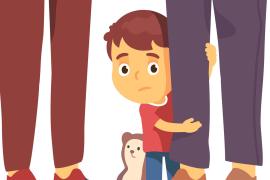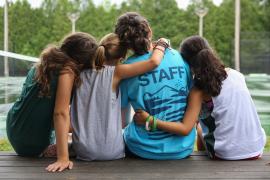Social cruelty, or bullying, has reached the level of “life and death.” With summer 2012 now here, parents are asking questions about how camp counselors and staff are being trained to keep their children safe. Please note that the parental question is clearly focused on direct caregivers — not on camp administration. Since school teachers have essentially been unsuccessful in preventing bullying nationwide, parents and guardians are not prepared to either waste their money or have their child victimized in a day or residential program. Some parents and guardians have engaged lawyers to litigate when campers identified being bullied and alleged that little or nothing was done about it.
The insidious societal issue of bullying continues primarily because those responsible for the care and safety of children in all congregate care programs are not all of one voice that declares, “No child in my care will experience any form of cruelty on my watch!” Misguided staff caring for campers who believe that bullying is a rite of passage — something to be handled by campers without adult intervention — may very well be responsible for the life of a child.
Bullying is preventable if all staff are willing to join hands to create a circle around campers. The exquisite safety of each camper is practically guaranteed as long as not one caregiver lets go. It requires total acceptance on your part and every caregiver that cruelty prevention is everyone’s number one priority and responsibility. This is not the responsibility of camp directors or your leadership team. They can design the policy and distribute it to all concerned, but they are not the staff who care for campers while in cabins, at activities, or on off-campus trips. Campers must be convinced from the very first day of camp that your personal goal is to keep them safe — that you and no other staff will tolerate any kind of cruelty and the consequence of non-compliance will result in being sent home.
Parents, staff, and campers must be made aware before camp even starts of the policy that declares, “Our Camp Is No Place for Bullying Behaviors,” because the effort to prevent bullying behavior must happen both at camp and at home. Children crave to be in summer camp programs, and understanding the clear expectations and boundaries carefully explained by parents and camp administration will help campers behave appropriately.
Download this flyer (text is copied below), print it out, and post it around camp — in cabins and public facilities — as a reminder to your campers and yourself that bullying behaviors will not be tolerated at camp this summer!
Our Camp Is No Place for BULLYING Behaviors!
The physical and emotional safety of other people’s children has always been, and continues to be, our number-one concern and priority.
Social Cruelty (Bullying)
What Is It?
Social Cruelty is defined as any behavior where a person aggressively attacks another person with words or actions directed to injure the victim’s wellbeing, to damage his or her standing, or to simply assert the aggressor’s dominance.
What Does It Look Like?
- Teasing
- Exclusion
- Bullying
- Rumoring
- Ganging up
Why Does It Happen?
- Social cruelty happens because it can.
- Many professionals responsible for children in every capacity share responsibility for the escalation of this problem.
- Many feel that bullying is simply part of growing up and no real cause of concern.
- “Why bother?” some exclaim, “It can’t be stopped anyway.”
What Are Researched Definitions?
- There is a pattern of behavior established.
- The bullying behavior has a negative impact emotionally, spiritually, or physically on the target/victim.
- An imbalance of power is established, which can take the form of gender, popularity, size, weight, economic situation, number of people involved, or intimidating looks.
- The bullying behavior is purposeful.
Is Teasing Ever Acceptable and Not Considered Bullying?
Teasing Is Acceptable When:
- Friends and everyone involved are getting an equal share of the teasing. (Kids are not ganging up on one person.)
- People are not making fun of someone’s disabilities, ethnicity, faith, or other characteristics that are out of the person’s control.
- The teasing is not repeated over and over again.
- It is not meant to harm you in any way, and if you ask the person to stop, they would.
- Someone you have a close relationship with does the teasing.
Social Cruelty (Bullying) Cannot Take Place if Together We Refuse to Allow It to Happen
Ask Your Campers:
- “How are you today?”
- “Is everything OK?”
Tell Your Campers:
- “Please let us know if we can help with any problems, especially bullying.”
- “We will not tolerate any cruelty of campers to anyone.”
- "Campers who bully will not remain at camp. Please don’t test us.”
- “We can only deal with cruelty if we know about it.”
- “If you see something, say something.”
***Our camp has a published anti-bullying policy. Parents, campers, staff, and volunteers are aware of it. Together we will prevent cruelty of any camper. Our camp is no place for a bully. A bully sent home will stay home: No return to camp this summer and no refund of tuition.***
References
Coloroso, B. (2004). The bully, the bullied, and the bystander. New York: Harper Resource.
Dess, J. (2012). Prevention intervention website. Retrieved from www.cobbk12.org/preventionintervention
Pickardt, C. (2010). Why good kids act cruel: The hidden truth about pre-teen years. Illinois: Source Books.
Norman E. Friedman, MEd, is the dean at Gene Ezersky Camp Safety College and director of AMSkier Partners, in Hawley, Pennsylvania. Contact the author at Normanf@amskier.com, 800-245-2666.
Originally published in the 2012 May/June Camping Magazine.


